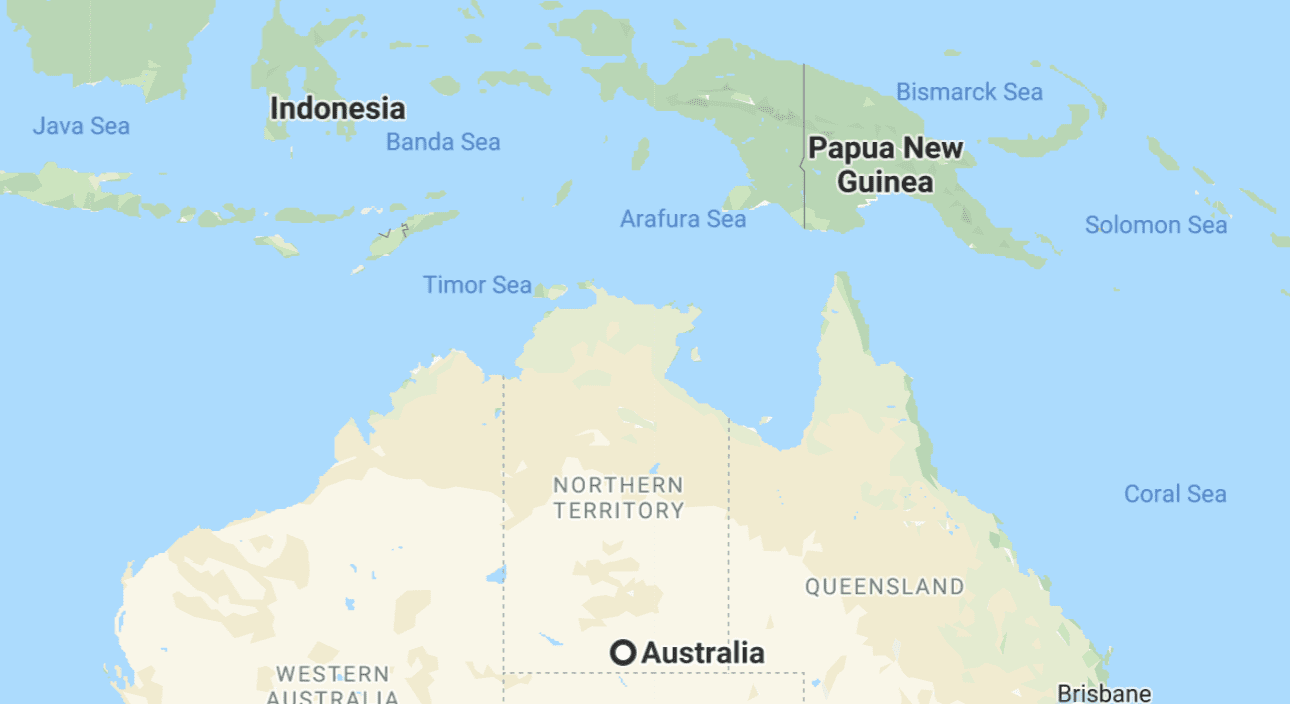AFRICAN Swine Fever (ASF) has been detected for the first time in Papua New Guinea, bringing the disease to within a few hundred kilometres of Australia’s coastline.
In late February the UN Food and Agriculture Organisation reported that a pig die-off of unknown origin had occurred in PNG’s Southern Highlands which had killed more than 300 pigs.
 PNG’s Agriculture Minister John Simon has now confirmed the cause was ASF, after samples were sent to Australia for testing.
PNG’s Agriculture Minister John Simon has now confirmed the cause was ASF, after samples were sent to Australia for testing.
ASF has now been detected in the provinces of Southern Highlands, Enga and Hela according to PNG media.
PNG’s National Agriculture and Quarantine Inspection Authority (NAQIA) said containment measures are underway to stop its spread to other provinces and the coast.
In addition to the impact this will have on PNG’s own pork industry, it also means the disease is now on Australia’s doorstep.
The shortest border distance is between the mainlands of Papua New Guinea and Australia at about 150 kilometres; however, the northernmost inhabited island, Boigu Island, is about 5 kilometres from Papua New Guinea.
Minister for Agriculture, Drought and Emergency Management, David Littleproud said with the spread of ASF to our neighbours Timor-Leste, Indonesia and now Papua New Guinea, our biosecurity is more critical than ever.
“With the confirmation of ASF in our near neighbour, our biosecurity measures are more important than ever.
“We offer our assistance to PNG as they work to contain this disease.
“Biosecurity measures in place in the Torres Strait have been ramped up as a result of COVID-19 and are being re-assessed to ensure they effectively manage the risk that ASF in PNG poses to Australia.
“While ASF is not a public health concern, it could devastate Australia’s pork industry if it were to arrive here.
“We cannot take biosecurity for granted. It protects jobs, farms, and food and it supports the economy. We need everyone to do their part and comply with these conditions when travelling here.
“The Australian government has a no-nonsense approach to biosecurity non-compliance because we know how important it is to keep pests and diseases like ASF off our shores.”
Biosecurity vigilance essential: APL
Australian Pork Ltd CEO Margo Andrae said the detection of ASF in PNG reinforced the importance of the ongoing ASF mitigation work between the pork industry, government and other stakeholders.
 “While ASF does not pose human health risks, the deadly virus would absolutely devastate Australia’s pork industry if it arrived here. The potential national economic impact from an ASF incursion in Australia is estimated to be more than $2 billion,” Ms Andrae said.
“While ASF does not pose human health risks, the deadly virus would absolutely devastate Australia’s pork industry if it arrived here. The potential national economic impact from an ASF incursion in Australia is estimated to be more than $2 billion,” Ms Andrae said.
“There is no cure for ASF and millions of Australian pigs would be at risk if the disease reached our country. That would devastate pork producers and Australian fresh pork supplies and seriously jeopardise the wellbeing of the 36,000 Australians employed in our industry.”
Ms Andrae said ASF represented potentially the biggest animal disease event the world has ever seen, having already killed hundreds of millions of pigs across Asia and Europe.
“ASF is now confirmed in PNG, Indonesia and Timor Leste and we’re concerned about its potential spread to the Pacific region. This battle is being fought across international borders and we welcome the Federal Government‘s offer this week to assist PNG to contain the virus,” Ms Andrae said.
“Even with current travel restrictions, there’s no room for complacency in terms of ASF, especially given international postal services remain operational. That’s why the installation of two new 3D x-ray machines at the Sydney and Melbourne mail centres, as part of the Federal Government’s $66.6 million ASF-response package, is such an important part of our defence.
“Biosecurity measures in the Torres Strait have been strengthened as a result of COVID-19 and the Government is further reviewing those measures to reflect the risk ASF in PNG poses to Australia.”
Confirmation of ASF in PNG coincides with the Inspector-General of Biosecurity’s release last week of the updated report on the adequacy of preventative border measures to mitigate the risk of ASF.
“A timely recommendation in the report is the inclusion of additional criteria in risk assessment for flights from ASF-affected countries, including a focus on seasonal farm workers,” Ms Andrae said.
“We can’t afford any weak links in our defence against ASF. All aspects of monitoring at the border are critical, but so is the work by producers to strengthen on-farm biosecurity and the cross-agency collaboration being led by National Feral Pig Management Coordinator, Dr Heather Channon.”


That is an incredible program which help people who farm livestock better understands more about the issue of the African swine flu.
This could be disastrous for food security in PNG. Large parts of the community outside of Port Moresby rely on subsistence farming, and running a few pigs is fundamental to meat protein supply
ASF could not have picked a worse time to turn up on Australia’s doorstep. Fortunately, we knew it was coming, so go hard Biosecurity.